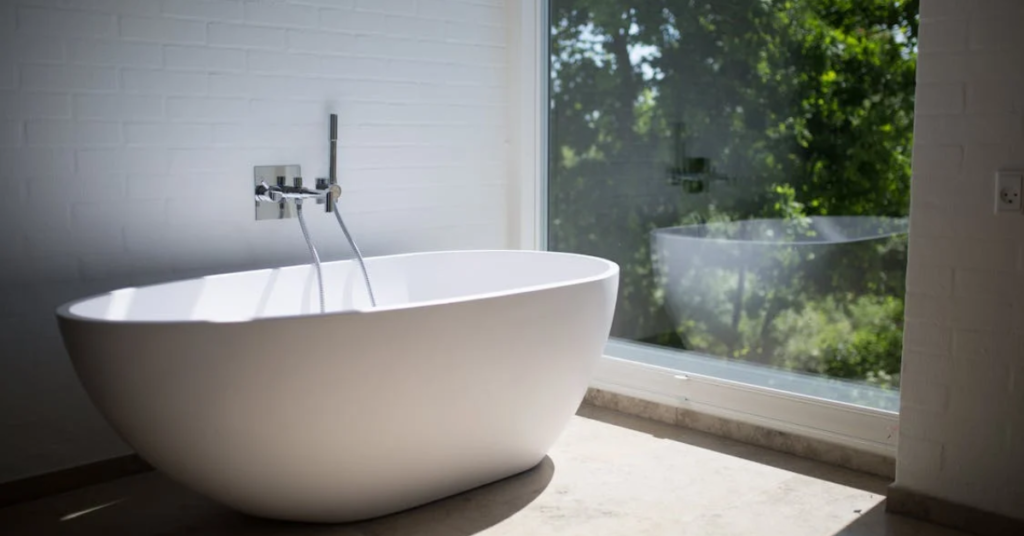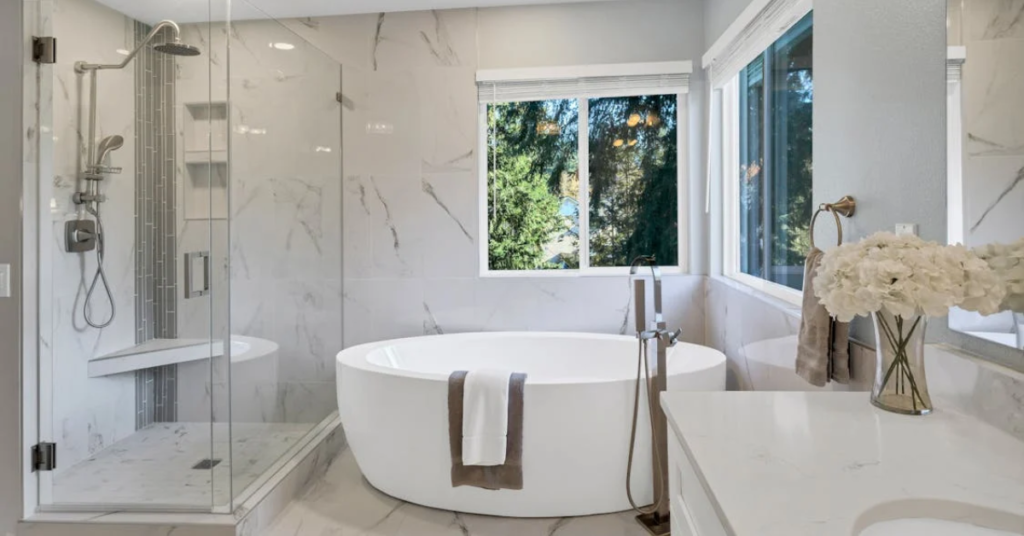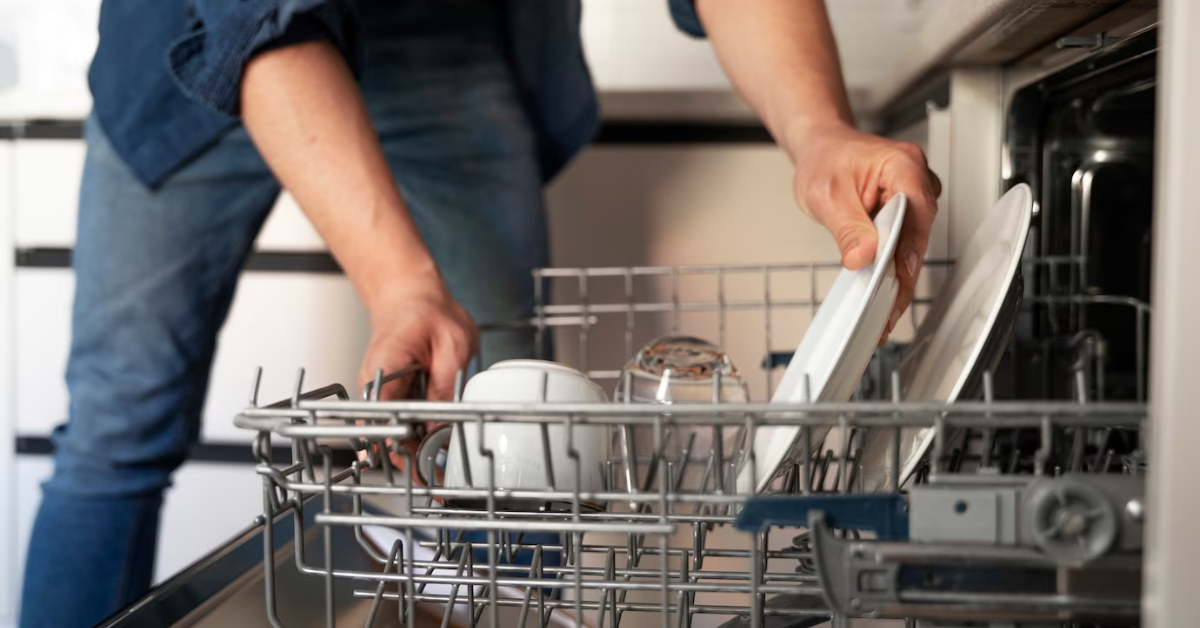How to Clean a Marble Shower: Best Methods, Products, and Tips for Safe, Effective Cleaning
TL;DR:
- Best Method: Use a pH-neutral, marble-safe cleaner with a soft cloth or sponge to avoid scratching.
- Fastest Method: Wipe down surfaces daily with a microfiber cloth or squeegee to prevent buildup and water spots.
- Natural Method: Clean with a mild dish soap solution diluted in water; avoid vinegar and acidic ingredients.
- Stain-Removal Method: Use a baking soda paste (apply sparingly and rinse well) for spot treatment on stains.
- Preventative Method: Dry surfaces after each use and seal marble every 6-12 months to protect against moisture and staining.
Introduction
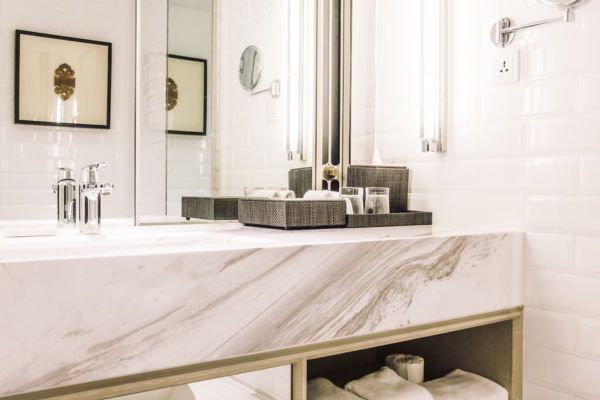
Why Marble Needs Special Care
Marble, with its elegant appearance and durability, is a popular choice for bathrooms. However, it is a porous stone sensitive to acidic or abrasive cleaning methods. Using the right products and techniques is essential to keep marble surfaces polished and avoid scratching, discoloration, or dullness. Proper care ensures marble’s longevity, helping you protect this valuable home investment.
Goal of This Guide
This guide offers easy-to-follow, safe methods for daily and deep cleaning of marble showers, covering essential tools and products, tips for preventing buildup, and advanced solutions for handling tough stains. With these tips, you can keep your marble looking new while avoiding long-term damage.
Important “Do Nots” for Marble Cleaning
Before you start cleaning, be aware of what can damage marble and should be strictly avoided:
- Avoid Acidic Cleaners: Products with vinegar, lemon, or citric acid are too harsh and can cause etching on marble surfaces.
- Avoid Abrasive Tools: Hard-bristled brushes, coarse sponges, and scrapers can scratch the marble.
- Avoid Store-Bought Chemicals: Many common bathroom cleaners contain acids or harsh ingredients unsafe for marble.
- Check Your Warranty: Carefully read your marble’s warranty to understand care requirements and avoid actions that may void it. Damage from improper cleaning often isn’t covered and can lead to costly repairs.
Project Overview
- Working Time: 10 – 20 minutes
- Total Time: 10 – 30 minutes
- Skill Level: Beginner
- Estimated Cost: Around $10 for basic supplies
Daily and Weekly Maintenance
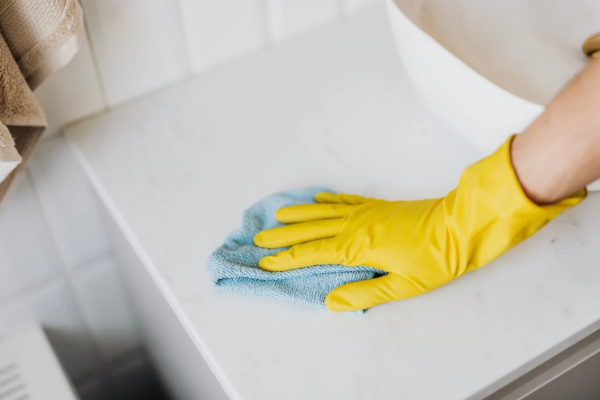
Daily Quick Clean
After each shower, use a soft microfiber cloth or squeegee to remove water and residue from bath products, starting at the top and working downwards. This will prevent soap scum, water spots, and mildew buildup.
Tip: If you keep the shower dry after each use and ventilate the bathroom to reduce humidity, you may only need to do a deep clean once a month.
Recommended Products: Use a marble-safe, pH-neutral shower cleaner daily for gentle and effective maintenance.
Weekly Deep Clean
For a deeper clean, remove light buildup, soap scum, and dirt using pH-neutral cleaners. These products are formulated to be effective on marble without the risk of damage.
Suggested Cleaners: Look for products labeled “marble-safe” or “pH-neutral” to ensure a gentle yet thorough clean.
Step-by-Step: Deep Cleaning a Marble Shower
Pre-Cleaning Preparation
- Clear all items from the shower, including bottles and accessories.
- Ventilate the bathroom to allow proper airflow during cleaning.
Choosing the Right Cleaner
- Use a pH-neutral cleaner specifically labeled for marble to avoid acid damage.
- Avoid common spray-on bathroom cleaners with acidic ingredients like vinegar or lemon juice, which can damage marble.
Applying the Cleaner
- Apply the cleaner with a soft cloth or sponge, starting at the top and working your way down. Focus on areas around fixtures and drains, where mildew and mineral deposits tend to form.
- Tools Needed: A soft brush for grout, as well as microfiber cloths or sponges.
Rinsing and Drying
- Rinse thoroughly with water, using a handheld shower head if available, starting from the top and working down.
- Dry and buff the surface with a microfiber cloth to avoid streaks and water spots.
Spot Treatment for Stains
- For tough stains, apply a baking soda paste sparingly and let it sit for a few minutes before rinsing. Avoid acidic products like vinegar, as they can etch marble surfaces.
Tip: For hard water buildup around fixtures or drains, use superfine No. 0000 steel wool and a light touch to prevent scratching. For discoloration from bath products, use 12% hydrogen peroxide on a cloth and place it over the stained area for 10 minutes, then rinse and dry.
Handling Specific Issues
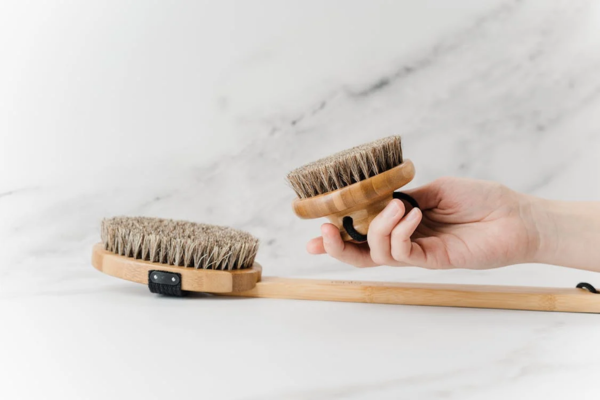
- Soap Scum Removal
- Use a marble-safe soap scum remover designed to break down buildup without abrasive agents. This will keep the marble clean without risking damage.
- Hard Water Stains
- Use a pH-neutral cleaner and, if necessary, gently use No. 0000 steel wool to lift deposits without scratching.
- Mold and Mildew Prevention
- Ask your marble installer to apply a mold and mildew inhibitor sealant, or dry the shower after each use to prevent mildew growth. Use a fan to reduce bathroom humidity and avoid mold formation.
- Showerhead and Additional Surface Cleaning
- For a thorough clean, don’t forget to wipe down the showerhead and other surfaces within the shower, ensuring a holistic approach to bathroom maintenance.
Choosing Marble-Safe Products
Best Marble Cleaners for Showers
Choose a marble-safe, pH-neutral cleaner to effectively clean without damage. Look for products with features like ease of application and multi-surface compatibility.
Recommended Products:
- MarbleLife’s Bathroom Cleaner Kit: Includes premade cleaners safe for both marble and grout.
- Granite Gold Shower Cleaner: Provides a safe and effective cleaning option from a brand with decades of experience.
- Mold and Mildew Stain Removers: Choose pH-balanced varieties for extra strength without damaging marble.
Best Practices for Using Hydrogen Peroxide
Hydrogen peroxide can be effective but should be used carefully, especially on darker marble. For light-colored marble, dilute and use sparingly, as it can fade color over time. Always test a small area first.
DIY vs. Commercial Cleaners
For regular maintenance, diluted dish soap is an effective DIY option, while commercial marble-specific cleaners offer convenience and targeted cleaning.
Long-Term Marble Shower Maintenance
Routine Sealing of Marble
Marble requires regular sealing every 6-12 months to protect against moisture and stains. Choose high-quality marble sealers and apply them in small sections, wiping away any excess.
Tip: If water no longer beads on the surface, resealing is due.
Protective Measures
To extend the life of your marble shower:
- Use non-slip mats to avoid scratching.
- Avoid using metal containers that can rust and stain marble.
- Ventilate after each use to minimize moisture buildup.
Consider Professional Cleaning
Consider hiring a professional cleaner to maintain your marble shower. Professional cleaning services typically cost $70-$150 for a full bathroom. Double-check that they have insurance in case of accidental damage.
FAQ (Frequently Asked Questions)
What is the Best Cleaner for Marble Showers?
A pH-neutral, marble-safe cleaner or diluted dish soap solution works well for regular maintenance.
Can You Use Bleach on Marble Showers?
No, bleach can damage marble. Stick with marble-safe, pH-neutral cleaners.
How to Clean Mildew from Marble?
The best protection against mildew is to wipe down marble surfaces after each use and ventilate the bathroom to reduce moisture.
Should You Hire a Professional to Clean Marble?
Hiring a professional cleaner can prevent the risk of damage. Make sure they’re insured.
Conclusion
Maintaining Your Marble Shower Long-Term Regular, gentle care and the right products will keep your marble shower looking beautiful and lasting longer. Remember to avoid acidic cleaners, dry surfaces daily, and seal the marble every 6-12 months.
Final Tips
Follow a cleaning routine suited to your lifestyle, helping your marble shower stay in top condition with minimal effort.

